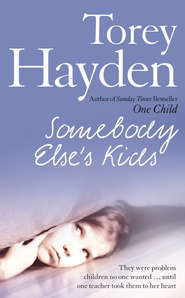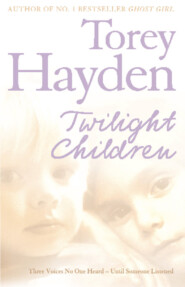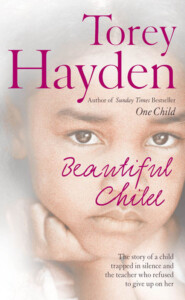По всем вопросам обращайтесь на: info@litportal.ru
(©) 2003-2024.
✖
The Tiger’s Child and Somebody Else’s Kids 2-in-1 Collection
Настройки чтения
Размер шрифта
Высота строк
Поля
Was it right to let her? This question was never far from my mind. My training, both in education and in psychology, cautioned rigorously against getting too personally involved with children, and I strove to keep the proper balance. On the other hand, I had always rebelled against the idea of not becoming involved at all. The cornerstone of my personal philosophy was commitment. I felt it was the unequivocal commitment of one individual to another, of me to the child I was working with, that evoked positive change. How could there be genuine commitment without involvement? That was a contradiction in terms.
On a gut level I felt Sheila had to have this relationship and without it she could never go forward. She needed the esteem that comes only from knowing others care for you, others value you sufficiently to commit themselves to you. She needed to know that while her mother might not have been able to provide this kind of commitment, this did not mean that Sheila was unworthy of it. Yet on an intellectual level I knew I was treading a dangerous path.
Just how dangerous came home to me in February, after Sheila had been with us about seven weeks. I had to attend an out-of-state conference, which meant I would be gone from class for two days. Having ample warning, I endeavored to prepare my class for my absence and the anticipated substitute teacher. Sheila reacted with rage.
“I ain’t never, never gonna like you again! I ain’t never gonna do anything you ask. It ain’t fair you go leave me! You ain’t supposed to do that, don’t you know? That be what my mama done and that ain’t a good thing to do to little kids. They put you in jail for leaving little kids. My pa, he says.”
Tirade after tirade and nothing I said, no effort I made to explain I would be gone only for two days abated Sheila’s anger. In my absence she reverted to all the worst of her old behaviors. She fought with the other children, bloodying noses and cracking shins. The record player was destroyed and the small window in the door was cracked. Despite Anton’s efforts to keep her in check, Sheila devastated the classroom and the substitute ended her days in tears.
I had expected better from Sheila and my anger, when she proved so uncooperative, was not a whole lot less than hers. She was a bright girl. She knew how long two days were. And I had gone to strenuous efforts to explain where I’d be, what I’d be doing and when precisely I would be back. She knew. Why could I not trust her to keep herself together for two lousy days?
To be more exact about the matter, I felt betrayed. Having known I was following such a dangerous course in allowing her growing dependence on me, I had wanted straightforward evidence that I was doing the right thing, that her dependence was natural and healthy and not too serious. I was, after all, going to have to walk out of her life in, at most, three and a half months’ time, when the school year ended, and in even less time, if the opening in the children’s unit at the state hospital occurred. For my own peace of mind, I needed reassurance I was helping more than hurting and—I suppose if I’m honest—I expected it from her. I had given her so much that, in my heart of hearts, I had trusted her to give this bit back to me. When she hadn’t, I reacted with an anger I didn’t control at all well.
We had, to put it mildly, a bad day, and even after school, when we were alone, the strained silence remained between us. I offered to do the things we’d come to enjoy so much: to read aloud to her, to let her help me correct my papers, to come down with me to the teachers’ lounge and share a soft drink, but she simply shook her head and busied herself in the far corner of the room with some toy cars. The first after-school hour passed. She rose and went to look out the window. When I next glanced up, she was still there but had turned to watch me.
“How come you come back?” she asked softly.
“I just went away to give a speech. I never intended to stay away. This is my job, here with you kids.”
“But how come you come back?”
“Because I said I would. I like it here. I belong here.”
Slowly, she approached the table where I was working. Her guard had dropped. The hurt was so clear in her eyes.
“You didn’t believe I was coming back, did you?”
She shook her head. “No.”
Chapter 3 (#ulink_2155bb71-df98-5f86-bf04-8dfaab14fcda)
Our falling-out over my absence did not appear to have any lasting effects. Indeed, just the opposite. Sheila developed an intense desire to discuss the incident: I had left her; I had come back. She had gotten angry and destructive; I had gotten angry and, in my own way, destructive. Each small segment she wanted to discuss again and again until it slowly slotted into place for her. The fact that I had come back was, of course, very important to her, but so too was the degree of my anger. Perhaps she felt that now that she had seen me at my worst, she could more fully trust me. I don’t know. Intriguingly, Sheila’s destructiveness virtually disappeared after this incident. She still became angry with great regularity, but never again did she fly into one of her rampaging rages.
Sheila bloomed, like the daffodils, in spite of the harsh winter. Within the limits of her situation, she was now quite clean and, better, she recognized what clean was and endeavored to correct unacceptable levels of dirtiness herself. Increasingly, she interacted with the other children in the class in a friendly and appropriate manner. She had gone home to play with one of the other little girls in the class on a few occasions and they indulged in the usual rituals of little girls’ friendships at school. Academically, Sheila sailed ahead, excited by almost anything I put in front of her. We were still coping with her fear of committing her work to paper, but that too improved through March. It seldom took more than two or three tries before she felt secure enough with what she had written down to let me look at it. She was still extremely sensitive to correction, going off into great sulks, no matter how gently I pointed out a mistake; and on moody days, she could spend much of the time with her head buried in her arms in dismal despair, but we were coping.
It was after school and Sheila and I had returned to The Little Prince yet again. Snuggled down in the pillows of the reading corner together, we had just begun the book. I had come to the part where the little prince demands that the author draw him a sheep.
“A sheep—if it eats bushes, does it eat flowers too?”
“A sheep,” I answered, “eats anything in its reach.”
“Even flowers that have thorns?”
“Yes, even flowers that have thorns.”
“The thorns—what use are they …?”
The prince never let go of a question, once he had asked it. As for me, I was upset over the bolt. And I answered with the first thing that came into my head:
“The thorns are of no use at all. Flowers have thorns just for spite!”
“Oh!”
There was a moment of complete silence. Then the little prince flashed back at me with a kind of resentfulness:
“I don’t believe you! Flowers are weak creatures. They are naive—”
Sheila laid her hand across the page. “I want to ask you something. What’s ‘naive’ mean?”
“It means someone whose ways are simple. They haven’t much experience with the world,” I replied.
“Do I be naive?” she asked, looking up.
“No, I wouldn’t say so. Not for your age.”
She looked back down at the book. “The flower thinks she has experience.”
I nodded.
“But the prince knows she doesn’t.” She smiled. “I do love this part. I love the flower.”
We read on:
So, too, she began very quickly to torment him with her vanity—which was, if truth be known, a little difficult to deal with. One day, for instance, when she was speaking of her four thorns, she said to the little prince:
“Let the tigers come with their claws!”
“There are no tigers on my planet,” the little prince objected. “And anyway, tigers do not eat weeds.”
“I am not a weed,” the flower replied sweetly.
“Please excuse me …”
“I am not at all afraid of tigers—”
The door to the classroom opened and the secretary stuck her head around the door. “Sorry to interrupt, Torey, but there’s a telephone call for you in the office.”
Handing Sheila the book, I rose and went down to take it.
It was the call I was dreading. The director of special education was on the other end of the line: a vacancy had come up in the children’s unit at the state hospital. Sheila’s time in my classroom was over.
To say I was devastated diminishes the enormity of the emotions I felt at that news. Whatever her difficulties, Sheila in no way belonged in a mental hospital. Intelligent, creative, sensitive, perceptive, she belonged here with us and, eventually, back in a normal class in a regular school.
I moaned, I pleaded, eventually I raged. The director listened. We got on well, he and I. I had always counted him among my allies in the district, the sort of man I relied on as a mentor, and this, if anything, made his call harder to take.
“It was settled long before any of us got into it, Torey,” he said. “You know that. There’s nothing we can do.”
Pathetic little flower, I thought, so proud of her fierce thorns, and when the tigers really came, the thorns gave no protection at all.











